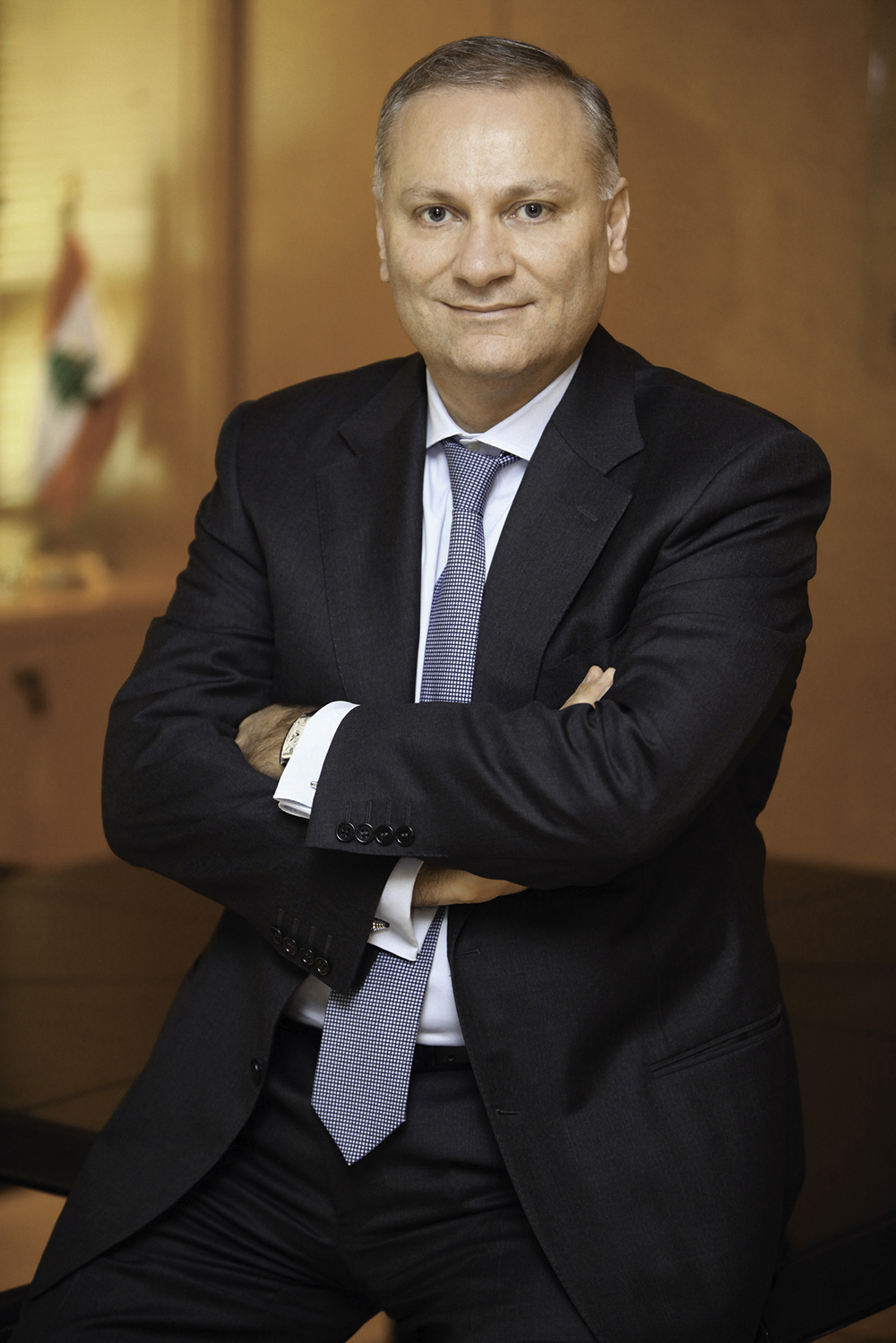Delivering better banking to the Middle East

With a model encompassing everything from commercial banking to asset and wealth management, and core values based around prudence, professionalism and integrity, BLOM BANK is a leader in Lebanese banking.

Saad Azhari, the Chairman and General Manager, takes The European through the history, achievements and future plans of this highly influential bank.
Established in 1952, BLOM BANK is one of the oldest banks in Lebanon. How has the country’s economy changed during this period, and how has the bank changed with it?
Saad Azhari: BLOM BANK was established during a golden age for the Lebanese economy, between 1945 and 1975. The bank benefited from the country’s position as a centre of commerce and finance in the region, and in turn, it contributed to the economy’s growth and potential. As the ‘Bank of Lebanon and Overseas’, BLOM BANK branched out to the Kingdom of Saudi Arabia in 1956 to serve the Lebanese and Arab expatriates there. During the Lebanese Civil war, from 1975 to 1990, the bank was adversely affected in Lebanon, and to compensate for that it branched out to the UAE and Europe in the 1970s and 1980s, offering commercial and private banking services to Lebanese and Arab clients who had moved there.
After the war, and with the Lebanese economy recovering strongly in the 1990s, BLOM BANK grew into a universal bank, offering commercial, corporate, retail, investment, and private banking services, in addition to insurance and capital market services. And with the increasing saturation in the Lebanese banking market, the bank expanded once again in the first decade of the new millennium into Egypt, Jordan, Saudi Arabia, Qatar, and Iraq, in addition to adding Islamic banking and asset management to its range of services. As a result, the bank’s foreign operations now constitute an increasing part of its business, for instance, comprising close to 42% of its loans portfolio. In Lebanon, the bank remains one of the two leading banks, taking first place in retail banking, and contributing notably to its economy, especially through its investments in the emerging start-up companies in the ICT sector and the knowledge economy.
BLOM BANK’s motto is ‘Peace of Mind’ – how does this manifest in the services delivered to your clients?
SA: We offer services that are safe, rewarding, and in line with international trends. We are also a universal bank, so we have a broad suite of services that our customers can utilise, and we are present in 12 Arab and European countries, so we provide ample opportunities for cross-country and cross-product selling. And despite being a conservative bank, we are very innovative, always creating new products and services – especially lately in the realm of digital banking – to meet the growing and diverse needs of our clients. I am happy to add, that we are also very active in CSR and sustainability activities, stretching over a wide spectrum of educational, humanitarian, cultural, and entrepreneurial programmes, thus helping to spread ‘peace of mind’ to our wider community. All this has made the bank the most recognised in Lebanon by leading international financial institutions.
Over recent years BLOM BANK has expanded its presence to multiple countries, including France, Switzerland and the UK. What can the bank offer through its global reach?
SA: As I touched on previously, we are present in 12 countries – Lebanon, Egypt, Jordan, Iraq, UAE, Saudi Arabia, Qatar, Switzerland, England, France, Cyprus, and Romania – and operate through 15 banking units and subsidiaries with 226 branches dispersed over these countries. In the Arab countries, because of the cultural and economic ties and the easy replicability of our services, we operate like one of the local banks, offering universal banking and financial services.
In the European market, however, we offer our expatriate clients specialised, niche services, mostly in private and commercial banking. We have slowed down our international expansion because we want to consolidate our presence overseas and to strengthen the synergies between our banking units. More specifically, we are bolstering our private banking activities in Lebanon and Switzerland; our investment banking and capital market activities in Saudi Arabia, Egypt, and Jordan; and our corporate activities in Egypt, UAE, and Qatar. We are, however, still open to further expansion in the region, especially in commercial banking activities in the Gulf. It is interesting to note that in 2017 BLOM BANK acquired branches of HSBC Lebanon – a key acquisition in shoring up the bank’s corporate and trade finance activities in the country.
With new technological advancements being made every day, as well as the demand for stable and reliable banking increasing, how is BLOM BANK shaping up for the years ahead?
SA: A major strategy of the bank, and one that carries the blessing of senior management, is digital transformation, with the aim of following international trends, as well as reducing costs. As a result, the bank’s overall penetration rate for ebanking and mobile banking currently stands at 31%, representing 123,500 subscribers. In parallel, transactions across digital channels witnessed an impressive growth in 2018, while corresponding branch transactions have declined.
The bank’s online platform eblom saw transactions increase by 38.9%, ATM transactions rose by 13.2%, while branch transactions fell by 4%. We are also working on increasing the use of eblom for corporate and trade finance transactions, so our digital services cover more and more of our activities. For safety purposes, we have installed a state-of-the-art cybersecurity infrastructure, such as two-factor authentication and customisable card safety limits. Our ultimate goal in the medium-to long-term is to become a leading digital, regional bank in Lebanon.
Further information
For more banking news, follow The European.


